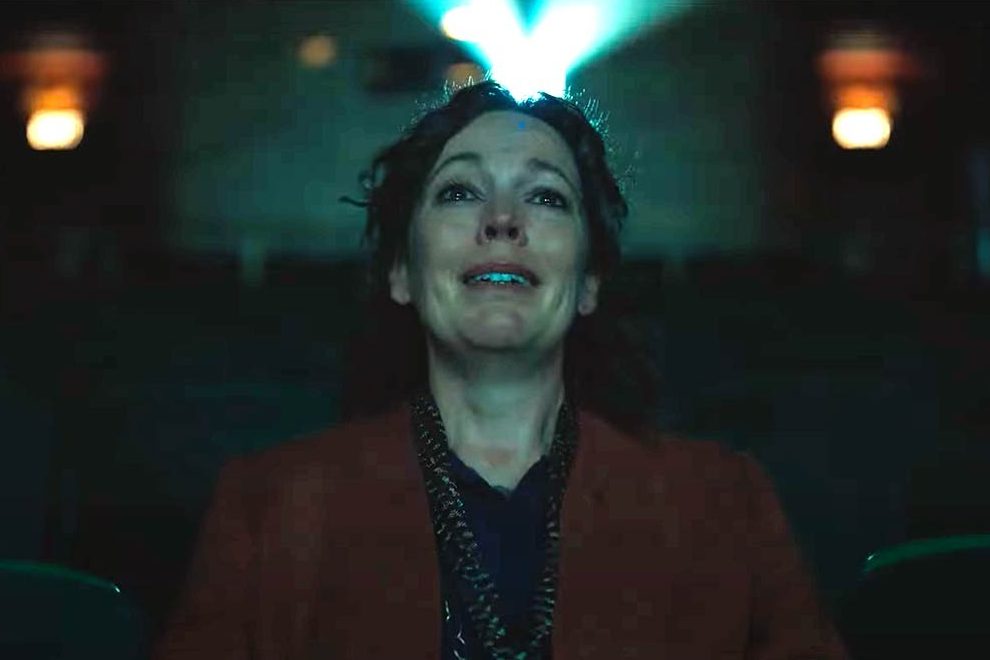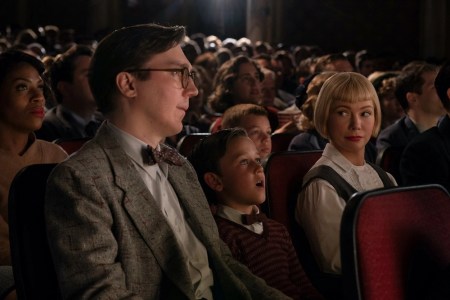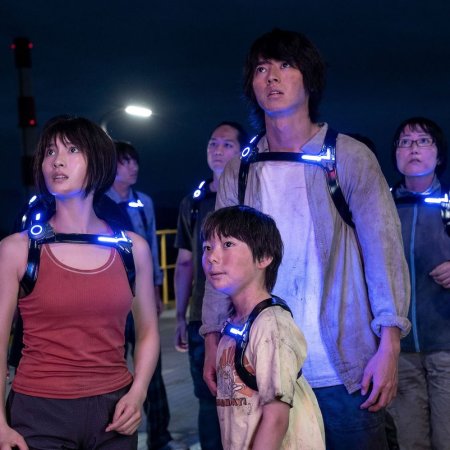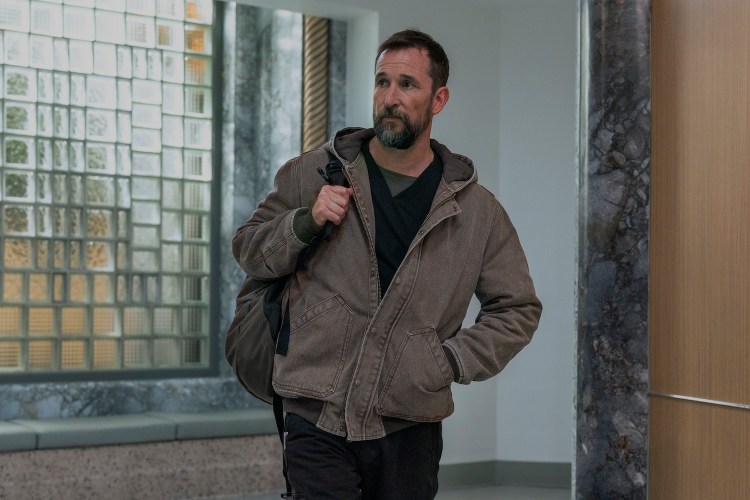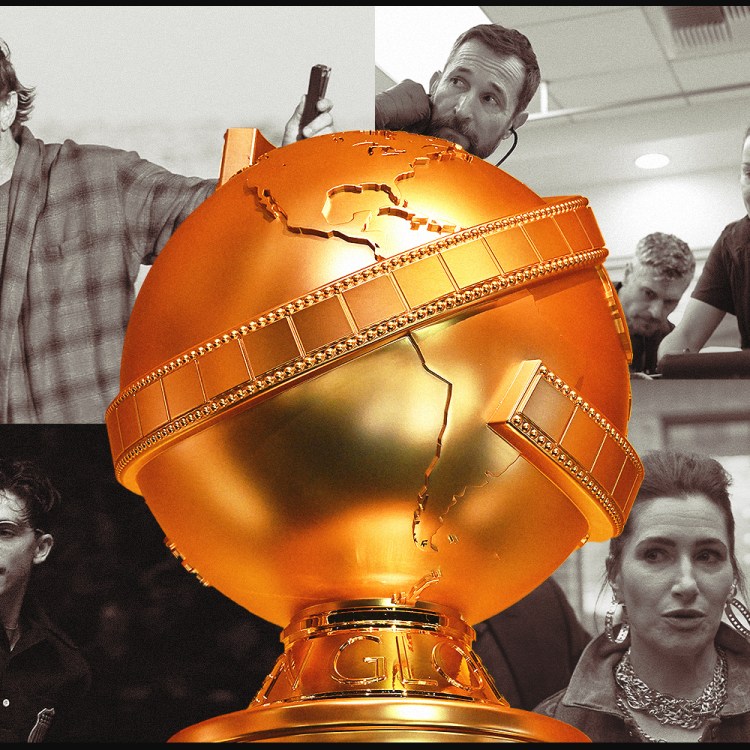It seems likely that given the wealth of methods to do so, more people are watching movies than ever before — while seemingly equally likely that less of that movie-watching happens in an actual theater, at least compared to three or four years ago. To an extent, moviegoing has bounced back since the widespread pandemic closure of theaters for much of 2020; superhero movies, horror films and even the occasional event for grown-ups can still draw a crowd into a public space. The smaller stuff, though, is often fighting for its life, or at least having its potential theatrical audience cut down by health concerns, shortened theatrical windows and streaming channels that treat big-screen releases as brief promotional events at best and Oscar-qualifying nuisances at worst.
All of which might help to explain the sheer number of 2022 movies that are mainly about, well, movies — especially (if not precisely) the magic of cinema. Shots of people looking up at movie screens — not, notably, their 65-inch flatscreens showing Netflix’s movie of the week — with awestruck reverence abound this year, whether justified or not. This is especially true in awards season, as studios’ prestige titles jockey for the attention of Oscar voters, who often perk up when they’re told what a great and noble job they’re doing, hence the success of movies about movies (The Artist), movies tangentially about movies (Argo), and movies about movie people who love movies (Once Upon a Time in Hollywood…). At the same time, all paeans to the magic of cinema are not created equal — or, in some cases, actually intended as paeans at all. With Empire of Light opening in limited release and the Old Hollywood epic Babylon just around the corner, it seems like a good time to sort through all of this magic and see how much of it should be debunked.
On that level, the most current and urgent of this group is Empire of Light, because its position as a magic-of-cinema experience at all is faintly baffling. This drama from director-turned-writer-director Sam Mendes (1917) stars Olivia Colman as Hilary, a lonely woman working at a two-screen movie house in 1980s coastal England. She begins an affair with Stephen (Michael Ward), a younger Black man facing dangerous hostility from skinheads in the Thatcher era, and eventually must confront her own shaky mental health.
What, you may ask, has this to do with an old theater showing The Blues Brothers? Quite little, nearest I can tell! Norman (Toby Jones), the theater’s projectionist, is on hand to wax briefly, if eloquently, about the transporting nature of watching a movie in the dark (as well as some of the technical procedure involved in splicing old film reels), and there’s probably no better working cinematographer to depict the rich shadows, silhouettes and tactile pleasures of an old movie theater than Mendes’ regular collaborator Roger Deakins. (“Empire of Light” could be the title of a Deakins career retrospective.) For that matter, Olivia Colman is such an empathetic and believable presence that she could probably sell some magic-of-cinema nonsense to Lars von Trier, if need be. All of these elements conspire to make Empire of Light seem almost reasonable, delaying the realization that its magic is all rather clumsy sleight-of-hand. Like last year’s Belfast, the grafting of cinema magic onto an attempt at capturing a particular time and place in U.K. history feels weirdly personal in its wrongheadedness, as if Mendes, like Kenneth Branagh before him, is attempting to reconcile what was happening in front of him with what he didn’t quite understand at the time. It’s not an unusual tactic for a cinematic memoir, however fictionalized, but it feels particularly tone-deaf and mismatched here.
Mendes at least has the excuse of never really making a movie about movies before. Technically, Steven Spielberg hasn’t done that either, but doesn’t a lot of his work fall under that rubric metaphorically? Hasn’t he engineered so many shots of characters staring awestruck into the light, and made so many movies tacitly about his parents’ divorce, that his recent film The Fabelmans should be like putting a hat on a hat, then adding a scarf to the top? But the trick of Spielberg’s autobiographical chronicle of a young filmmaker coming into his own is that after so many years building a (sometimes unfair) rep as a shamelessly sentimental director, Spielberg’s tribute to cinema is genuinely thorny and complicated about the process of making and watching movies. Sammy, the Spielberg stand-in character, keys into a love of cinema from watching, with fascinated horror, an on-screen train wreck, which he then attempts to replicate at home. Like this summer’s Nope, the movie links a desire for spectacle with genuine danger, maybe even a desire to stare death in the face; early in the film, Sammy’s mother Mitzi (Michelle Williams) drives her family toward a massive storm, to get a better look. Though not all of Sammy’s subsequent movies crash trains or hurtle toward a storm, he is intoxicated by his camera’s capacity for capturing truth and creating ridiculous fabrications. It is very much a magic trick, and one that saves (or at least defines) Sammy’s life, but Spielberg doesn’t sentimentalize it. Mitzi says in the first scene that “movies are dreams,” which sounds like cheesy reverie, until you realize that this idea is placed, by the movie, in direct opposition with the control (and even dishonesty!) that filmmaking offers. (Shades, there, of Christopher Nolan’s Inception, which is Spielbergian in its show-making subtext.)
Steven Spielberg Turns the Camera on Himself With the Stunning “The Fabelmans”
The director’s semi-autobiographical tale is a reminder that he’s everywhere in his films even when we can’t see himThe Greatest Show on Earth, the Cecil B. DeMille circus picture that makes such an impression on young Sammy in The Fabelmans, was a somewhat old-fashioned spectacular even in the 1950s, when it won Best Picture; its stars-and-carnage-and-elephants approach to cinema gets a workout in Babylon, mostly set decades earlier during the turbulent transition from silent movies to talking pictures. Yes, that’s also the plot of Singin’ in the Rain, which Babylon blows up to epic length and Boogie Nights-style debauchery, following a number of characters as Hollywood brings them high and low. Writer-director Damien Chazelle has been accused of simultaneously fetishizing, misrepresenting, and trivializing the objects of his supposedly nostalgic affection, from jazz in Whiplash and La La Land to older movies in La La Land and now Babylon, which has an ending sequence that’s like a turbocharged version of that Nicole Kidman AMC bumper (“heartbreak feels good in a place like this,” etc.). Yet, as with The Fabelmans, reading Babylon as a director’s movie-drunk self-tribute ignores Chazelle’s goggle-eyed acknowledgment of how wild and disreputable the actual making of movies can be. The cacophony of simultaneous productions during one sequence is basically a less elegant version of that deadly floating beast from Nope: Something that cannot be physically contained, but might be fleetingly captured and, therefore, preserved before it flies away or falls apart.
Set even further back in the history of movies is Ti West’s Pearl, a prequel to his 1979-set X, offering an origin story of sorts for that movie’s elderly slasher. It turns out, Pearl (Mia Goth) lost it at the movies: Her frustration over a lonely farm life is fomented by her glimpses of nascent Hollywood glamour via the silent movies she sneaks away to catch. West uses touchstones from other eras — quasi-Technicolor out of ‘50s melodramas, Wizard of Oz imagery — as a window into Pearl’s cracking psyche, the magic of cinema imbued with a monkey’s-paw quality. Pearl isn’t screwed up by love of movies, but they don’t offer her Empire of Light salvation, either, and maybe the reason the Mendes film sticks out at such odd angles is the sheer number of 2022 films that have moved beyond these reverent celebrations of the movie house as a temple, admitting, as so many people turn away from that experience, and why some of us persist in such a strange communion, like adherents to a dying religion. Put another way: Maybe there’s a reason heartbreak feels good in a place like this — one that has less to do with the ineffable collective ritual of moviegoing, and more to do with finding a place to rest our already-broken hearts.
This article appeared in an InsideHook newsletter. Sign up for free to get more on travel, wellness, style, drinking, and culture.
